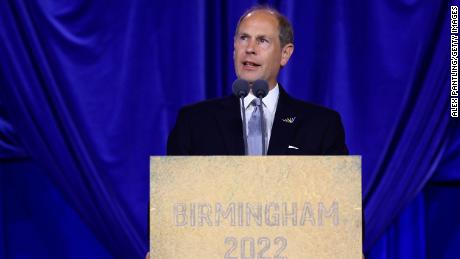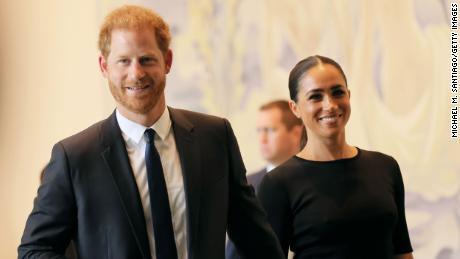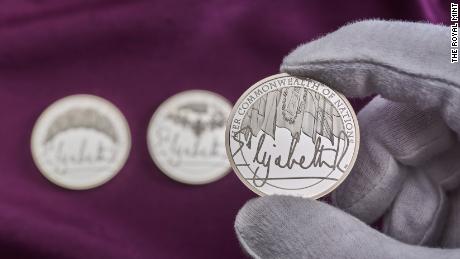Who has one? Who doesn’t? When do royals get them and why? And, of course, why do some give them up or lose them? Questions like these come up all the time, and frankly, given all the lore and historical background involved, we don’t blame you if it gets a little confusing.
Obviously, at the head of the British monarchy, you have the sovereign, and when you address him, it is “Her” or “Her Majesty”. Beyond that, most titles are a gift from the monarch.
With the children of a monarch, there are automatic titles in play. The eldest son always becomes the Duke of Cornwall. He is also traditionally given the title Prince of Wales – a role Charles was invested in in 1969.
Beyond the firstborn son, all children and grandchildren of the monarch are born prince or princess.
It should be noted here that royal parents can refuse the gift of a title, which the Queen’s daughter, Anne, has chosen to do for her children. Additionally, royal parents may want their offspring to follow a style similar to themselves. So in the case of the Queen’s youngest son, Edward, Earl of Wessex, and his wife, Sophie, their children are styled those of an earl and are named Lady Louise Mountbatten-Windsor and James, Viscount Severn.
Great-grandchildren only get the coveted title if they are direct heirs to the throne, like the eldest of the Cambridges, Prince George.
You will also have noticed that senior members of the family are often referred to as “HRH” or “His” or “His Royal Highness”. With an HRH, you are expected to perform duties on behalf of the monarch. Nevertheless, there are a few family members who hold HRHs but do not represent the Queen, such as Princesses Eugenie and Beatrice.
Spouses of princes also usually obtain courtesy titles. So when Harry married Meghan Markle in 2018, she became Princess Henry of Wales – although she rarely goes through with it, opting instead for her gifted title of Duchess of Sussex.
If you got it all figured out, let’s move on to the peerage system. This dates back to medieval times and was designed to ensure that the monarch was surrounded by a stable group of nobles to help rule the kingdom. The most exclusive rank is that of duke, followed by marquis, earl, viscount and, finally, baron. These can be given to anyone – royal or non-royal subjects.
If the precedence of peerages were not confusing enough, it is further complicated by the fact that an individual may hold several peerages of different ranks. Wives of peers are also given courtesy titles, but husbands generally do not.
Titles are, for the most part, considered ceremonial. But there are still hereditaries – Duke or Baron – who can give you the chance to sit in the House of Lords, one of the two houses of the British Parliament, and vote on laws. As the members of the royal family are supposed to be politically independent, they do not take any seats themselves.
Finally, there are knighthoods, which are awarded by the monarch for outstanding achievement and are awarded on the advice of the government. Men who are ennobled are called “Monsieur” and women are called “Lady”. Other non-hereditary awards that may be bestowed by the monarch include Commander, Officer or Member of the Order of the British Empire (better known as CBE, OBE or MBE). The Sovereign may also choose to bestow a British Empire Medal or invest an individual in the Orders of the Garter or the Thistle.
Phew, ok, that concludes our overview of the complex title systems at play. It’s a convoluted arrangement rooted in centuries of lore. Some think it’s outdated and perpetuates the British class system. But whatever your view, it doesn’t seem likely to change anytime soon.
WHAT ELSE HAPPENS?
Queen welcomed to Balmoral privately.
The 96-year-old monarch was welcomed to Balmoral Castle in Scotland by a guard of honor on Tuesday, but the event was held in private. The event was tailored for the “comfort” of the Queen, the palace told CNN. Traditionally, the monarch inspects a military unit at the gates of the property to mark their return to residence. British news agency PA Media reports that the Queen visited Scotland at the end of July but is believed to have stayed elsewhere on the estate before moving to her main Balmoral retreat this week. The Queen is often joined by family members during the summer at her Scottish residence, but is expected to cut short her holiday in September to briefly return to England for audiences with outgoing Prime Minister Boris Johnson and his successor.
Prince Edward closes the Commonwealth Games with a message of hope.
The Earl of Wessex concluded the 2022 Commonwealth Games by praising the athletes for inspiring future generations of competitors. Stepping onto the podium at Birmingham’s Alexander Stadium for the Closing Ceremony on Monday, the Queen’s youngest son told a large crowd: “Every four years we strive to come together to celebrate our Commonwealth through the sport.Through the manner, style and enthusiasm with which you have competed, officiated, supported, organized and volunteered, you have once again brought the spirit and values of the Commonwealth to life. ” The prince added: “You have inspired us and hopefully future generations. You have also demonstrated what unites us.” Edward – who has been the games’ vice-boss since 1990 – was a frequent spectator of the various sports, often bringing along his wife, Sophie, and children, James and Louise, as well.
Harry and Meghan will receive a humanitarian award.
The Sussexes and their Archewell Foundation will be honored at a charity event next week for their work advocating for Afghan refugees. The Human First Coalition award will be presented to the couple at a benefit event in New York on Monday. Archewell executive director James Holt is expected to accept the honor on their behalf. The event will feature traditional Afghan food, music and a bazaar. US Senator Richard Blumenthal of Connecticut will also receive an award for his service to Afghan refugees at the ceremony, which coincides with the one-year anniversary of the Taliban takeover of Afghanistan.
DID YOU KNOW?
Irish artist and illustrator PJ Lynch, who designed each of the £5 coins, revealed his inspiration saying: “I first focused on the Queen’s hands; she shakes hands so often – it’s is how she welcomes and communicates with the people she This led me to consider her signature, so symbolic, as an instrument of state when she signs official documents, but also as her personal promise and commitment .
The Prince of Wales marked International Youth Day on Friday with a call to action to stand up for the next generation while acknowledging the challenges they have faced in recent years. In his video message, Charles noted that “from the impact of a public health crisis, and now a cost of living challenge, to the threat of climate change, there has been much to erode the hope of the younger generation”.
ONE LAST THING…
Just a quick one, Royal News readers – we wanted to let you know that we’re off on another short two week break as the summer draws to a close (that, that flew, didn’t it?). But don’t worry, we will resume our regular weekly service from September 2.
Take care and see you soon
Max and Lawrence



